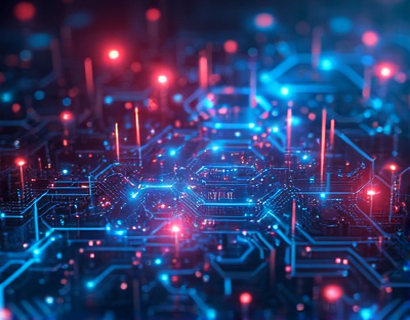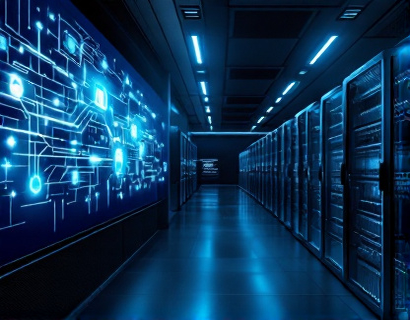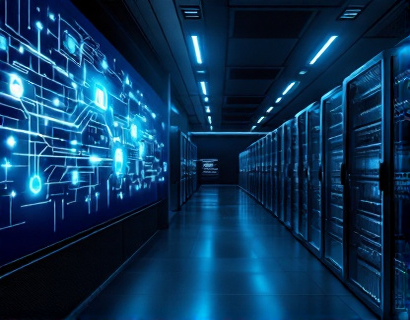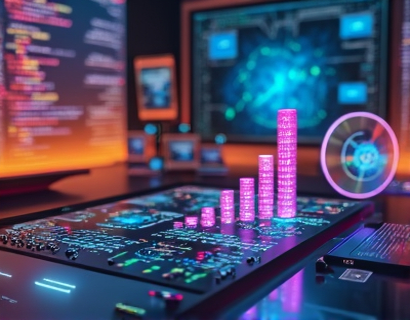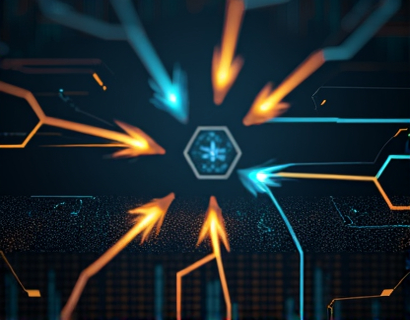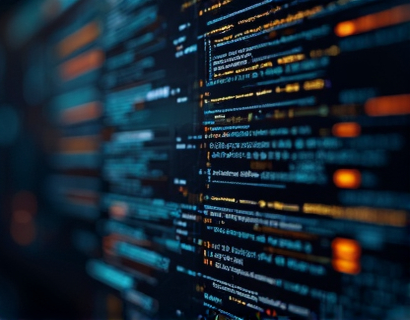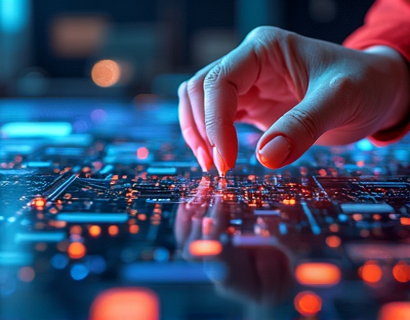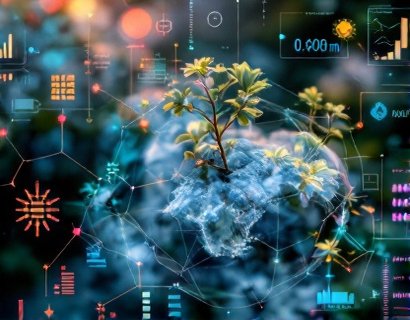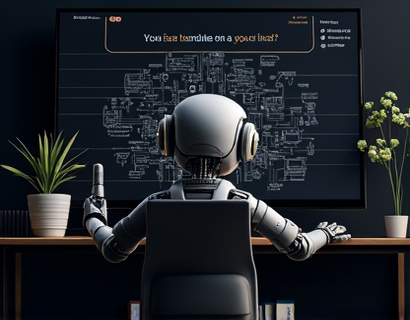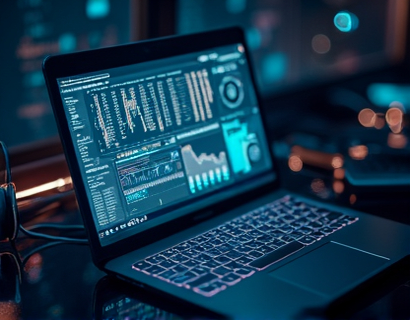The Convergence of AI and Crypto: Pioneering Financial Innovation for the Digital Age
The intersection of artificial intelligence (AI) and cryptocurrency is giving birth to a new era in financial technology (FinTech), one that promises to revolutionize the way we interact with money and financial services. This convergence is not just a technological advancement but a paradigm shift that is redefining the very foundations of banking and finance. For tech-savvy crypto enthusiasts and innovators, this is an exciting time, as the potential for intelligent, efficient, and personalized financial solutions is vast and largely untapped.
The integration of AI into the crypto ecosystem is multifaceted, impacting various aspects from trading and investment to security and user experience. AI algorithms can analyze vast amounts of data at speeds and depths unimaginable for humans, identifying patterns and making predictions that can inform trading strategies and investment decisions. This capability is particularly valuable in the volatile world of cryptocurrencies, where timing and insight can mean the difference between profit and loss.
Enhanced Trading and Investment Strategies
One of the most immediate impacts of AI in crypto is in the realm of trading and investment. AI-driven trading bots can execute trades 24/7, without the emotional biases that often affect human traders. These bots use machine learning to adapt to market conditions, learning from past trades to improve future performance. This not only increases the efficiency of trading but also opens up opportunities for smaller investors who may not have the resources to monitor markets constantly.
Moreover, AI can provide personalized investment advice tailored to individual risk profiles and financial goals. By analyzing a user's historical data, market trends, and economic indicators, AI systems can suggest optimal investment strategies that are both aggressive and conservative, depending on the user's preferences. This level of personalization is a significant step forward from traditional financial advice, which often relies on broad, one-size-fits-all recommendations.
Improved Security Measures
Security has always been a critical concern in the crypto space, and AI is playing a pivotal role in enhancing it. AI algorithms can detect and respond to suspicious activities in real-time, significantly reducing the risk of fraud and hacking. By analyzing transaction patterns and user behavior, AI can identify anomalies that may indicate malicious activity, allowing for swift action to be taken.
Additionally, AI can strengthen the security of blockchain networks themselves. Through advanced cryptographic techniques and continuous monitoring, AI can help maintain the integrity and security of the blockchain, ensuring that transactions are valid and that the network remains resilient against attacks. This is particularly important as the value of cryptocurrencies continues to rise, making them more attractive targets for cybercriminals.
Personalized User Experiences
The user experience in the crypto space is being transformed by AI, offering more intuitive and user-friendly interfaces. AI-powered chatbots and virtual assistants can guide users through complex processes, providing instant support and answers to common questions. These AI assistants can learn from user interactions, becoming more efficient and personalized over time.
Furthermore, AI can enhance the onboarding process for new users, simplifying the often daunting task of setting up a crypto wallet and understanding the basics of cryptocurrency trading. By breaking down complex concepts into digestible pieces and offering step-by-step guidance, AI can make the entry barrier lower, attracting a broader audience to the crypto ecosystem.
Smart Contracts and Decentralized Applications
AI is also revolutionizing the way smart contracts and decentralized applications (dApps) are developed and utilized. Smart contracts, which are self-executing contracts with the terms directly written into code, can be enhanced with AI to make them more dynamic and responsive. AI can analyze external data and conditions, triggering smart contract actions based on real-time information, thus increasing their utility and efficiency.
Decentralized applications, which operate on blockchain networks, can leverage AI to provide more sophisticated and user-centric services. For example, AI can improve the matching algorithms in decentralized finance (DeFi) platforms, optimizing lending and borrowing processes, and enhancing yield farming strategies. This not only improves the performance of these applications but also makes them more accessible and beneficial to users.
Financial Inclusion and Accessibility
One of the most promising aspects of the AI and crypto convergence is its potential to promote financial inclusion. Traditional banking systems often exclude large segments of the population due to geographical, economic, or regulatory barriers. Cryptocurrency, powered by AI, can provide a decentralized and accessible alternative, enabling people in underserved regions to participate in the global economy.
AI can further enhance this by offering localized solutions that cater to the specific needs and contexts of different communities. For instance, AI can help in creating financial products and services that are culturally relevant and economically suitable, thereby increasing adoption and usage. This democratization of finance has the potential to empower millions, fostering economic growth and stability.
Challenges and Considerations
Despite the numerous benefits, the integration of AI and crypto is not without challenges. Regulatory uncertainty remains a significant hurdle, as governments and financial authorities are still grappling with how to oversee these new technologies. Ensuring compliance while fostering innovation is a delicate balance that requires collaboration between tech companies, regulators, and policymakers.
Another challenge is the technical complexity involved in developing and maintaining AI systems. Not all players in the crypto space have the resources or expertise to implement advanced AI solutions effectively. This could lead to a divide between well-resourced entities and smaller, emerging projects. Education and community support will be crucial in bridging this gap.
The Future Landscape
Looking ahead, the future of finance is increasingly intertwined with AI and crypto. As technology continues to advance, we can expect even more sophisticated and seamless integrations. The development of central bank digital currencies (CBDCs) combined with AI could lead to more efficient monetary policies and financial systems. Additionally, the rise of quantum computing may further enhance the capabilities of AI in crypto, opening up new possibilities for security, processing power, and data analysis.
The role of AI in crypto is not just about technology; it's about creating a more inclusive, efficient, and secure financial landscape. For tech-savvy innovators, this is an exciting frontier, full of opportunities to shape the future of finance. As the ecosystem evolves, those who embrace these changes will be well-positioned to lead and benefit from the next wave of financial innovation.





